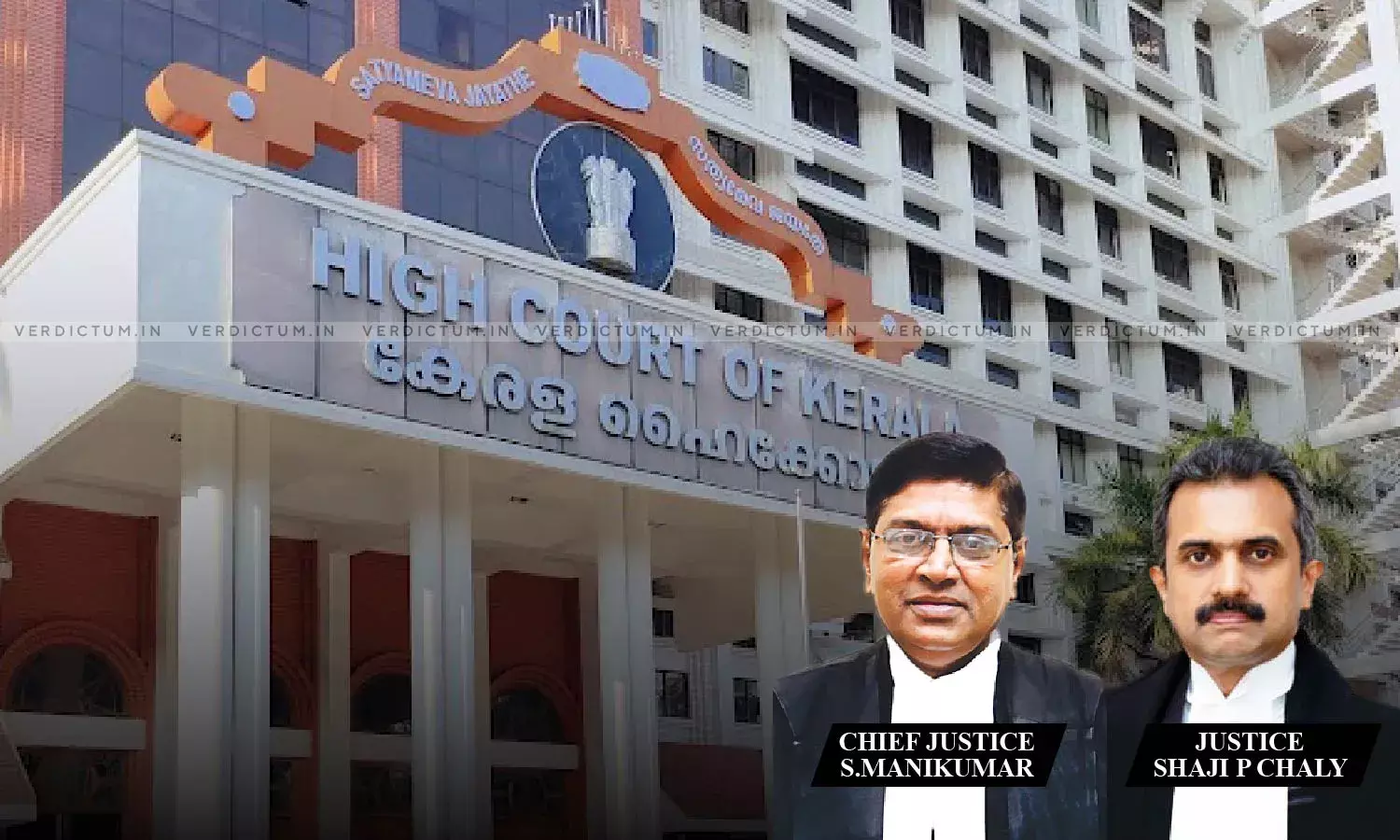Kerala HC Dismisses State's Appeal Against Grant Of Pension To Legal Heirs Of Erstwhile Ruler
The Kerala High Court's Division Bench has dismissed the appeal challenging the Judgment of a Single Judge whereby the Order passed by the State Government refusing family and political pension to the legal heirs of the erstwhile rulers of the territory of Paravur was quashed.
The bench of Chief Justice S.Manikumar and Justice Shaji P. Chaly was dealing with the question- whether after the repeal of Article 291 of the Constitution dealing with privy purses, the family of the writ petitioner is entitled to get the annuity contemplated under Article 295(2) of the Constitution of India
In this case, the petitioner is a member of Malayala Brahmin family, which possessed sovereign rights over the territory of Paravur in Ernakulam District, which were relinquished in favour of the ruler of Travancore State.
In consideration of the said relinquishment, the ruler of Travancore State made a grant of annuity to the petitioner's family.
After the death of Ravi Sharma Raja Krishna Raja, the petitioner became the eldest member of the family.
Thereupon, the petitioner submitted an application to get pension payment order changed in the name of the petitioner; however, the Government took a stand that the benefit granted to the predecessor of the petitioner was a personal right, and the same cannot be given to his successor-in-interest, and accordingly the claim was declined.
When the matter went before a Single Judge of the Kerala High Court, the Single Judge set aside the decision of the government.
Thereafter the State filed an appeal against the said order.
State Attorney N.Manoj Kumar appeared for the appellants and Senior Counsel T.Krishnanunni, assisted by Advocate R.Ramads appeared for the respondent/writ petitioner.
The Court observed that "…annuity is obligated to be paid by the State on the basis of the agreement executed by the petitioner's family with the Travancore State, and later by the United States of Travancore - Cochin, which remains unchanged, having been accepted by the State."
The Court further added that the deletion or the insertion of the provisions as per the 26th amendment to the Constitution of India, would not alter the obligation of the State under Article 295 (2) of the Constitution of India.
While analyzing the law laid down by the Apex Court in the case of Maharaja Shree Umaid Mills Ltd., the Court observed that it is categoric and clear that until Article 295 (2) is remaining in the Constitution as such and the obligation created as per a contract is accepted as such by the successor state, the State is obligated to honour the contract and protect the rights and interests of the petitioner's family to that extent.
Thus the Court held that appellants had not made out a case of any jurisdictional error or other legal infirmities justifying Court's interference in the judgement of the single Judge.
Accordingly, the appeal was dismissed.
Cause Title- State of Kerala v. Ravi Parameswara Raja
Click here to read/download the Judgment




